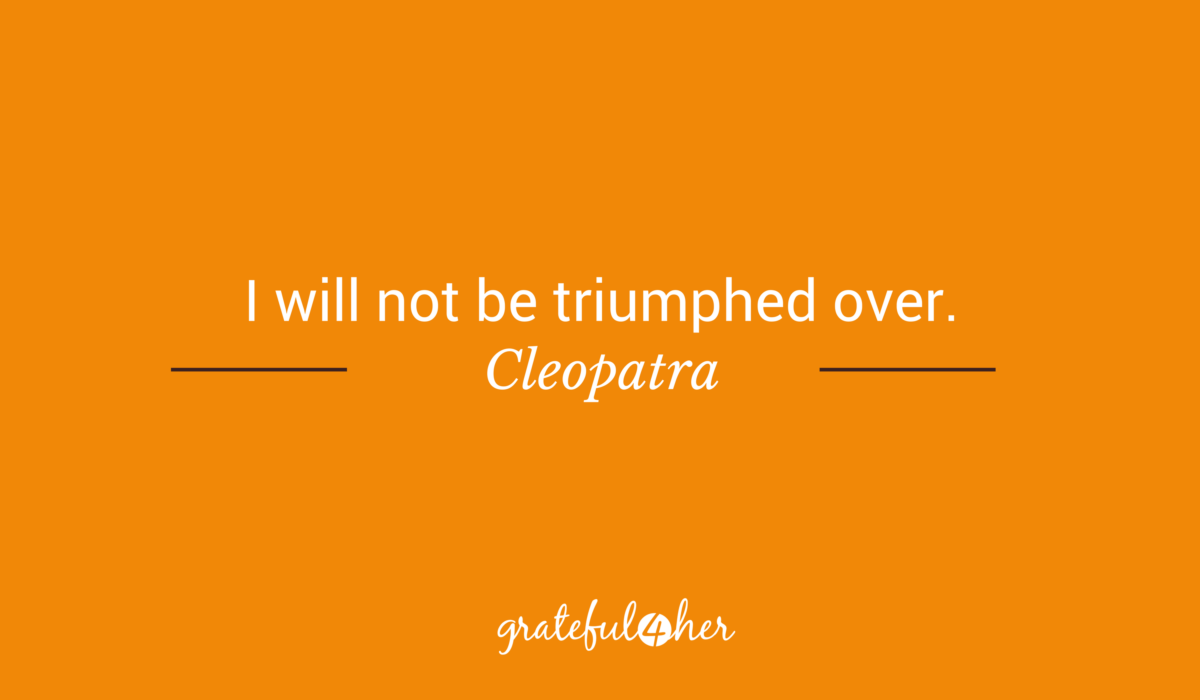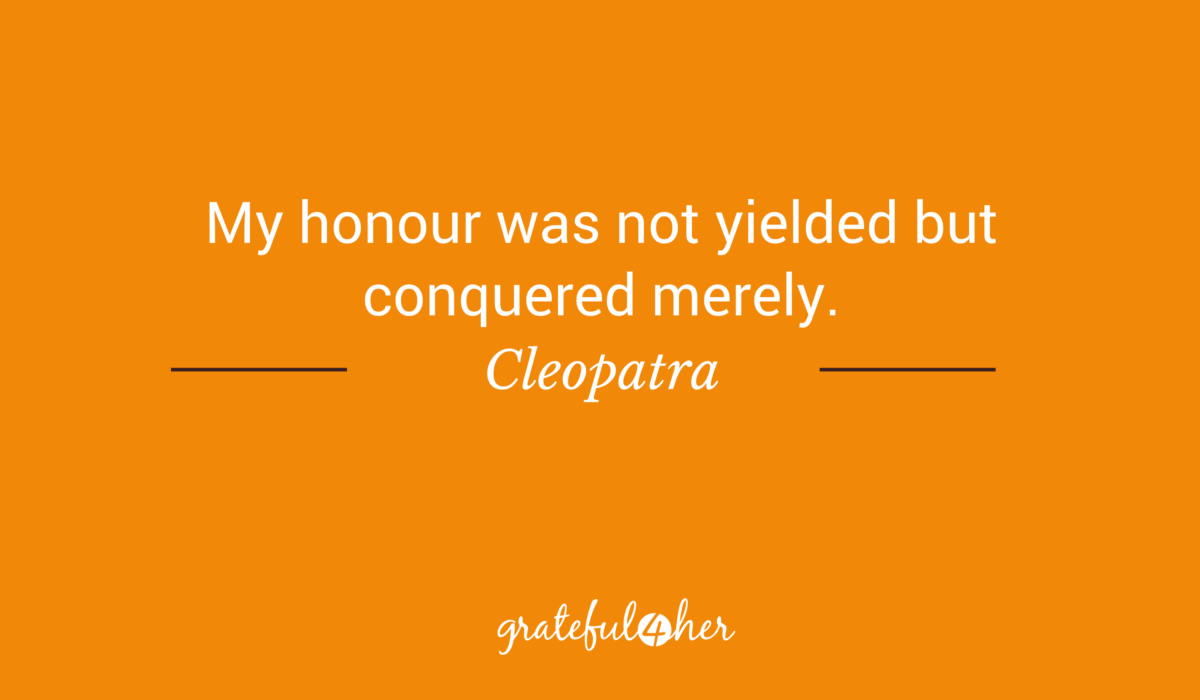The Birth of Cleopatra
Born in 70 or 69 B.C., Cleopatra was a daughter of Ptolemy XII (Auletes). Her mother was believed to be Cleopatra V Tryphaena, the king’s wife (and possibly his half-sister).
The Legacy of Cleopatra
Cleopatra VII (69 – 30 BC) was the last Ptolemaic ruler of Egypt. In 51 B.C., upon the apparently natural death of her father Auletes, the Egyptian throne passed to 18-year-old Cleopatra and her 10-year-old brother, Ptolemy XIII. She ruled ancient Egypt as co-regent (first with her two younger brothers and then with her son) for almost three decades. She became the last in a dynasty of Macedonian rulers founded by Ptolemy, who served as general under Alexander the Great during his conquest of Egypt in 332 B.C.
Cleopatra sought to defend Egypt from the expanding Roman Empire. In doing so she formed relationships with two of Rome's most powerful leaders Marc Anthony and Julius Caesar. Her romantic liaisons and military alliances with the Roman leaders bore her a son with Julius Caesar and with Mark Antony, the father of three of her children and whom she most loved. For this, Cleopatra has been called a temptress who used her sexuality to maintain her grip on the throne of Egypt. The truth is much more complex and fascinating.
Her legacy survives in numerous works of art and many dramatizations of incidents from her life in literature and other media, such as William Shakespeare's tragedy Antony and Cleopatra, George Bernard Shaw's play Caesar and Cleopatra, Jules Massenet's opera Cléopâtre, and the films Cleopatra (1934) and Cleopatra (1963).
Cleopatra sought to defend Egypt from the expanding Roman Empire. In doing so she formed relationships with two of Rome's most powerful leaders Marc Anthony and Julius Caesar. Her romantic liaisons and military alliances with the Roman leaders bore her a son with Julius Caesar and with Mark Antony, the father of three of her children and whom she most loved. For this, Cleopatra has been called a temptress who used her sexuality to maintain her grip on the throne of Egypt. The truth is much more complex and fascinating.
Her legacy survives in numerous works of art and many dramatizations of incidents from her life in literature and other media, such as William Shakespeare's tragedy Antony and Cleopatra, George Bernard Shaw's play Caesar and Cleopatra, Jules Massenet's opera Cléopâtre, and the films Cleopatra (1934) and Cleopatra (1963).
Why we are grateful4her
Well-educated and clever, Cleopatra could speak various languages and served as the dominant ruler in all three of her co-regencies. Egypt grew more prosperous under Cleopatra’s rule, and in 37 B.C. Antony again met with Cleopatra to obtain funds for his long-delayed military campaign against the kingdom of Parthia. In exchange, he agreed to return much of Egypt’s eastern empire, including Cyprus, Crete, Cyrenaica (Libya), Jericho and large portions of Syria and Lebanon.
Medieval Arabic texts further suggest that Egyptian queen Cleopatra VII was a brilliant early mathematician, chemist and philosopher who wrote science books and met weekly with a team of scientific experts. Egypt's queen was a brave and coolheaded political realist struggling to save herself and her country from Roman domination. She was a highly educated, top-flight administrator renowned for her intellect. Plutarch writes that she could speak at least nine languages and rarely had need of an interpreter.
As well as her supposed exotic beauty and powers of seduction, her intellect and political leadership earned her an enduring place in history and popular myth.
Medieval Arabic texts further suggest that Egyptian queen Cleopatra VII was a brilliant early mathematician, chemist and philosopher who wrote science books and met weekly with a team of scientific experts. Egypt's queen was a brave and coolheaded political realist struggling to save herself and her country from Roman domination. She was a highly educated, top-flight administrator renowned for her intellect. Plutarch writes that she could speak at least nine languages and rarely had need of an interpreter.
As well as her supposed exotic beauty and powers of seduction, her intellect and political leadership earned her an enduring place in history and popular myth.
Interesting Facts
Legend has it that Cleopatra took her own life by succumbing willingly to the bite of a cobra. Historians are still debating this. Cleopatra also had strongly identified herself with the goddess Isis, the sister-wife of Osiris and mother of Horus.



